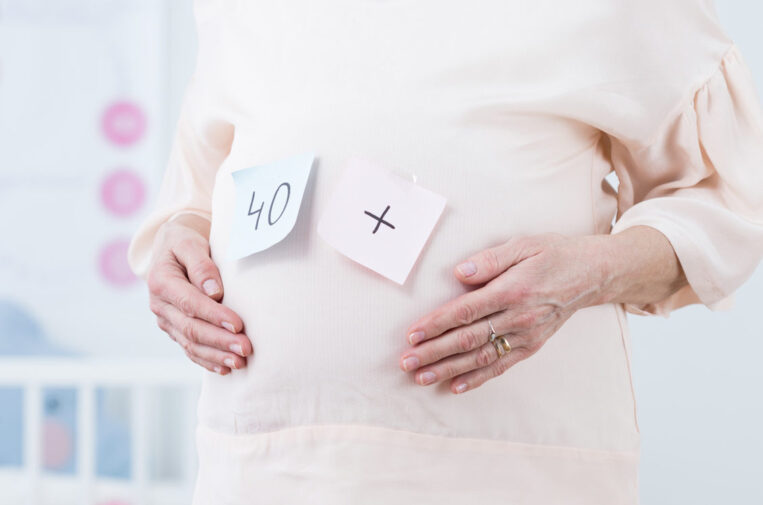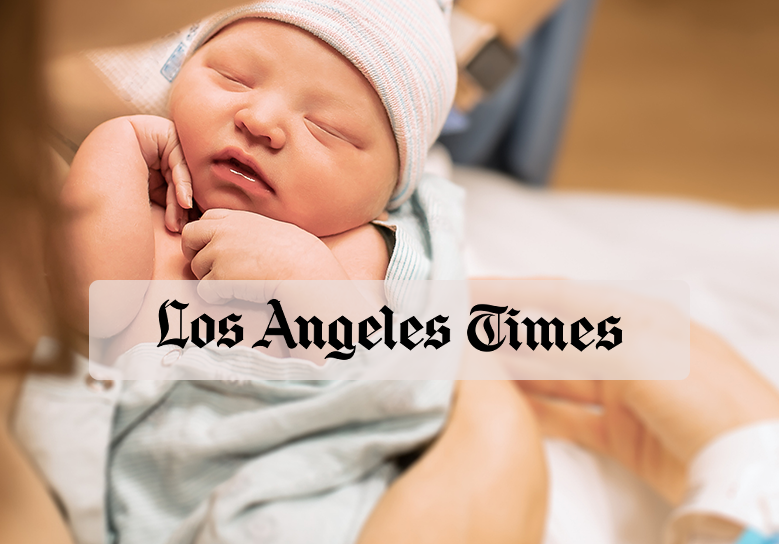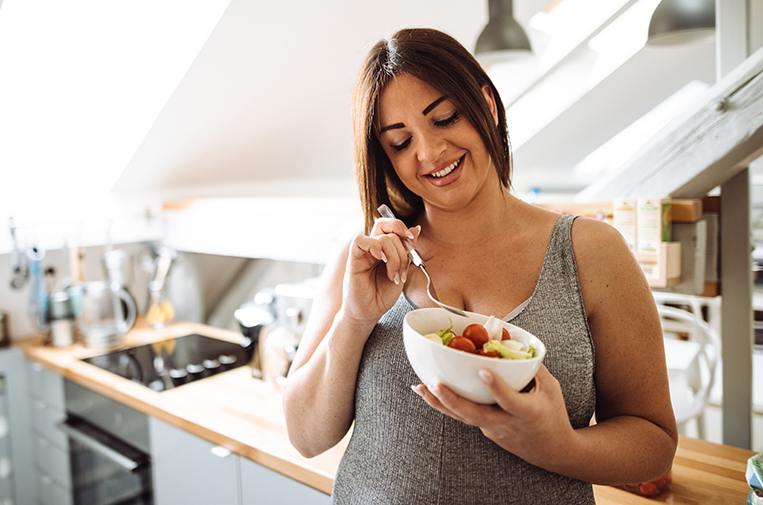How do you increase success rates for a 43-year-old woman from 10-70 percent? Egg donation.
At RSC, we welcome women in their 40s who want to get pregnant. While the discussion about the quality of one’s eggs is often emotion-laden, we love that women are living full and exciting lives and wanting to grow their families. From ages 40 to 43 the discussion is often centered on assessing a woman’s egg quality and quantity and determining if fertility treatment with her own eggs will be successful.
By the time a woman reaches 43 years, success rates are usually less than 10 percent. For this reason, many potential older moms over the age of 43 are looking to conceive using egg donation, their partner’s or donor sperm, and their own uterus. While these women must come to accept that their children will not have their DNA, their success rates will reach above 70 percent for a single cycle. Knowing that they could be holding their baby in their arms within a year makes this option especially attractive.
Because of the high success rates, and the happy families these women are enjoying, egg donor-created pregnancies are become a more common option in the Bay Area.
So, the question I often get asked is whether it is still safe to carry a pregnancy over the age of 45.
In the past, there have not been a lot of studies looking at this particular population to help women understand the risks they may be taking on as an “older mom.” A study published in Fertility and Sterility in January 2017 by Guesdon compared outcomes for women of very advanced age, looking at pregnancies in women ages 40 to 49 (146 patients) and women 50 years and older (40 patients).
All pregnant women were cared for at the same institution in France and data were collected and evaluated retrospectively. What they discovered is that women in their 50s had similar outcomes to women in the 45 to 50 age group, if they had a singleton pregnancy. However, the risk of twins was much higher both in the over 45 age group as well as the over 50 age group making for a strong recommendation to prevent twins resulting from egg donation in women over 45.
To help potential older moms, RSC allows the use of donor eggs up to age 51
At RSC, our policy is to allow a woman to initiate an egg donation cycle up until her 51st birthday. If she has resulting frozen embryos and wishes to use them, we will allow her to undergo an embryo transfer until her 52nd birthday. We strongly encourage elective single embryo transfers (eSET) at the blastocyst stage in all women using donor eggs. However, it is now our policy to allow women to transfer only a single embryo if it is their first transfer and they are over the age of 45.
We require that all women in this age group see a perinatologist or an obstetrician to discuss their management during pregnancy before they actually conceive. We also present women with carefully collected data about pregnancy risks so that they can make an informed decision.
I’ve summarized some of the risks below, but each woman needs an individual consultation to look at both their baseline health and how that may increase or decrease their pregnancy risks.
Common risks include an increase in gestational diabetes, hypertension, preeclampsia, premature rupture of the membranes, and C-sections. Neonatal risks include low birth weight and complications arising from preterm delivery and prematurity.
Pregnancy risks for older moms
The French study mentioned above found a high risk of complications in older moms in both the over-45 and over-50 groups. For women who had singleton pregnancy, isolated pregnancy-related high blood pressure and fetal growth restriction were seen in the over-50-year-old group statistically more often than in the over-45-year-old group.
Preeclampsia: 24 percent if over 45 years; 20 percent if over 50 years
Ten times the risk over the general population and four times the risk of women 40-45.
Gestational diabetes: 13 percent if over 45 years; 17.5 percent if over 50 years
Twice the risk of the general population.
Postpartum hemorrhage: 18.5 percent if over 45 years; 15.5 percent if over 50 years
Three times higher than the general population.
Emergency hysterectomy: 10 times the risk over the general population
Women with multiple-gestation pregnancies experienced:
- A high incidence of premature rupture of membranes (about 25 percent)
- Preterm delivery (39 percent)
- Birthweight less than 2500 g or 5.5 lbs. (30 percent)
- Postpartum hemorrhage (21 percent).
Maternal mortality is also three times higher for mothers with multiples than for mothers of singletons.
In general, older moms and their babies do quite well when it comes to delivery. This is thanks to good hospitals, good doctors, and modern technology. However, it’s important that we help women who are considering pregnancy over the age of 45 to understand that there are real risks to which they are exposing themselves. By understanding this they can make a careful decision and can take steps to help mitigate these risks. We want to help them in this endeavor and look forward to helping create those families.






